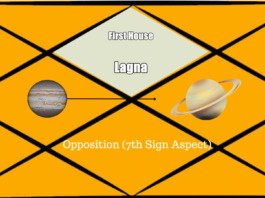In Vedic astrology, Venus, known as “Shukra” in Sanskrit, holds a significant place among the celestial bodies. It is considered the planet of love, beauty, harmony, and creativity. Venus represents our desires, relationships, aesthetic sensibilities, and the pleasures we seek in life.
Venus governs not only romantic love but also encompasses the broader spectrum of love, including self-love, friendships, and harmony in all types of relationships. It influences our capacity to form deep connections, appreciate beauty in all its forms, and seek balance and harmony in our interactions with others.

Beauty and aesthetics are closely associated with Venus. It influences our sense of style, artistic expression, and appreciation for art, music, and the finer things in life. Venus encourages us to cultivate beauty in our surroundings and find joy and inspiration through artistic endeavors.
Venus also represents our values, desires, and material possessions. It influences our attraction to wealth, luxury, and material comforts. It governs our ability to attract abundance and enjoy the pleasures and indulgences of life.
In addition to its association with love and beauty, Venus holds sway over diplomacy, negotiation, and the ability to find common ground. It encourages compromise, cooperation, and the fostering of harmonious relationships. Individuals with a strong Venus placement in their birth chart tend to possess charm, grace, and an innate ability to bring people together.
Understanding the significance of Venus in Vedic astrology provides valuable insights into our relationships, aesthetic inclinations, and the pursuit of harmony and pleasure in life. By working with Venus’s energies, we can enhance our capacity for love, appreciation of beauty, and the creation of harmonious connections with others.






